This blog post is the 3rd installment in our DevOps Decoded series, featuring expert Q&A from our recent webinar:
Mind the Gap: DevOps Skill Assessment Made Simple.
If you missed it, you can still register to watch the recording.
👉 Don’t forget to check out Part 1 and Part 2 of the series!
Part 3: Kubernetes & Related Technologies
Kubernetes continues to be central to modern DevOps practices, but organizations face critical decisions about implementation, certification paths, and emerging technologies. In this section, we address key questions about the Kubernetes ecosystem and related cloud-native technologies.
Q6. Are there any advantages in installing kubernetes rather than using managed solution?
Self-managed Kubernetes offers several distinct advantages over managed services, primarily in the areas of control, customization, and security. When you deploy your own Kubernetes environment, you gain complete control over your security posture, potentially achieving true zero-trust architecture that might be challenging with managed offerings.
You'll also benefit from greater flexibility in installing specialized software components, customizing the control plane, and implementing specific networking configurations that might not be available in managed services.
That said, these advantages come with significant operational overhead. Most organizations choose managed Kubernetes services because cloud providers typically maintain robust security certifications and handle the complex maintenance tasks, allowing your team to focus on application deployment rather than infrastructure management.
The decision ultimately depends on your specific requirements around security compliance, customization needs, and available operational resources. For many organizations, the trade-off of some control for reduced operational burden makes managed services the practical choice.
Q7. After CKA which is good certificate is good for devops?
After achieving your CKA, I recommend pursuing the Certified Kubernetes Security Specialist (CKS) certification. Security represents one of the most challenging and valuable aspects of Kubernetes expertise, requiring deep understanding of networking, RBAC, policy enforcement, and threat mitigation.
Beyond Kubernetes-specific certifications, consider broadening your DevOps credentials with CNCF certifications related to GitOps methodologies, service mesh technologies like Istio, or developer portal platforms like Backstage. The Cilium certification, which covers eBPF technology, is particularly valuable as it addresses next-generation networking and observability capabilities that are revolutionizing container environments.
These certifications demonstrate not just technical knowledge but the ability to implement secure, scalable, and observable infrastructure - core competencies for senior DevOps roles.
Q8. How far will CKA get you w/o devops experience?
The CKA certification alone can open doors to specialized Kubernetes administrator roles, especially when combined with hands-on experience managing Kubernetes environments. Many organizations are seeking professionals who understand Kubernetes architecture, troubleshooting, and day-to-day operations.
However, in most environments, Kubernetes rarely exists in isolation. You'll typically need to interact with CI/CD pipelines, infrastructure as code, observability tools, and automation frameworks. While pure Kubernetes engineering positions exist, they frequently intersect with broader DevOps practices and tooling.
To maximize your career potential, I recommend complementing your CKA with fundamental knowledge of CI/CD concepts, infrastructure as code principles, and observability practices - even without formal DevOps experience. This combination of Kubernetes expertise and DevOps awareness will significantly enhance your value to prospective employers.
Q9. How about Kubeflow jobs in coming days?
Kubeflow is positioned for significant growth as organizations increasingly implement ML workloads on Kubernetes. As machine learning becomes a fundamental competency across industries, Kubeflow's ability to orchestrate ML workflows on Kubernetes infrastructure makes it an increasingly valuable skill.
We're also seeing rapid evolution in the AI agent space with tools like Ka-agent (based on Microsoft's Auto-GPT framework), which enables running generative AI agents directly on Kubernetes. This convergence of containerized infrastructure and AI workloads represents a major growth area.
For professionals supporting data science or machine learning teams, Kubeflow expertise will become increasingly essential. While it's still early to definitively determine if Kubeflow will dominate this space, developing skills in ML orchestration on Kubernetes now positions you advantageously for the expanding AI infrastructure landscape.
Q10. eBPF* courses?
We're developing a comprehensive Cilium certification in collaboration with the CNCF that includes significant coverage of eBPF technology, scheduled for release in the next 3-6 months. eBPF represents one of the most transformative technologies in the cloud-native ecosystem, enabling unprecedented visibility and control at the Linux kernel level.
This technology is revolutionizing networking, security, and observability capabilities across Linux-based systems, with particular impact on Kubernetes environments. By providing programmable hooks into kernel operations without requiring kernel modifications, eBPF enables advanced security policies, performance optimization, and deep observability that were previously impossible.
As this technology continues gaining traction, expertise in eBPF will become increasingly valuable for both platform engineering and security roles in cloud-native organizations.
What's Coming Next in the DevOps Decoded Series
Continue exploring our DevOps Decoded series:
📚 DevOps Decoded Series
Part 1: DevOps Implementation & Strategy — Insights on platform engineering, balancing business priorities, and our comprehensive DevOps curriculum.
Part 2: DevOps with AI — Learn how to navigate AI tools in restricted environments and understand the evolving relationship between DevOps and AI technologies.
Part 4: MLOps & AI Frameworks — Discover the growing intersection of DevOps and machine learning operations, including guidance on framework selection and implementation.
Accelerate Your Kubernetes Journey
Ready to expand your Kubernetes expertise? Explore our Kubernetes Learning Path or check out our CKS preparation course to advance your certification journey.
🙋♂️ Have questions about Kubernetes or related technologies?
Our team is here to help.



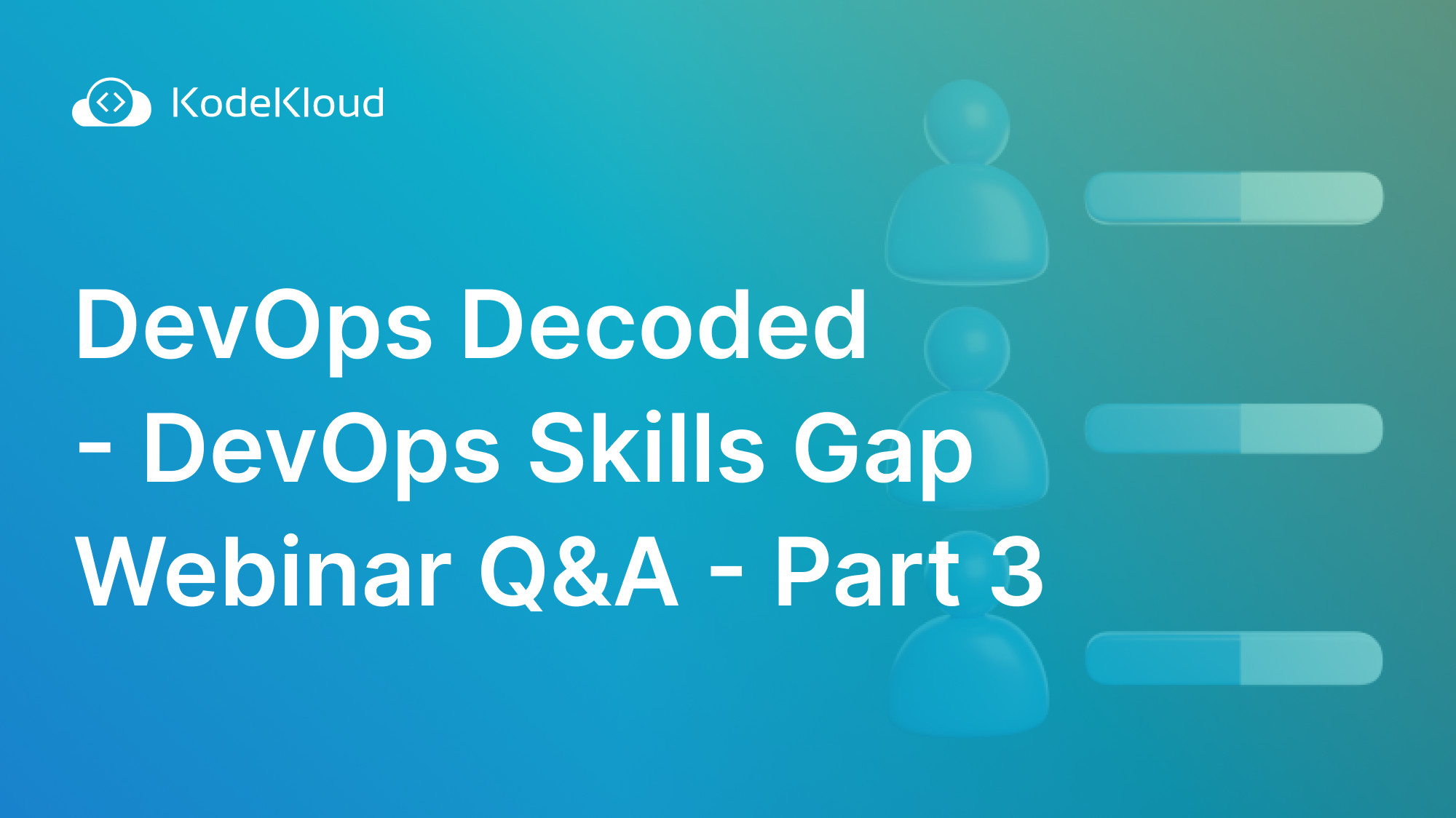
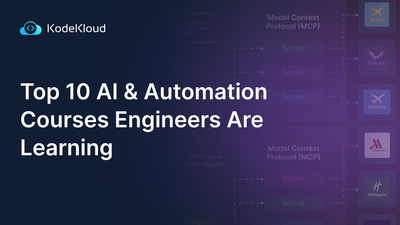
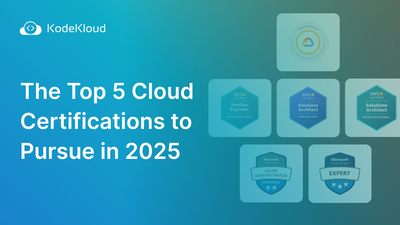
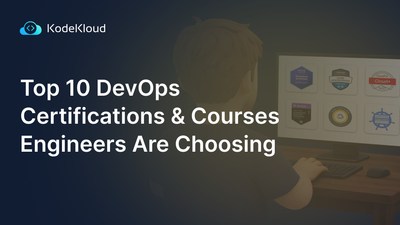

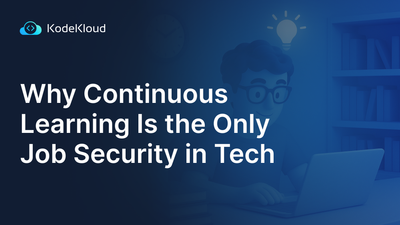
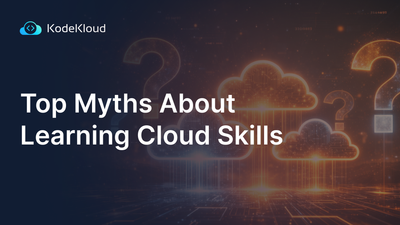
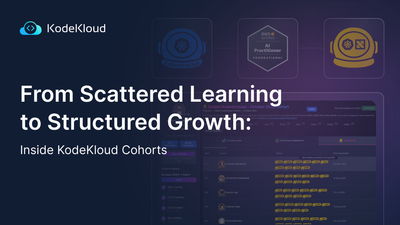
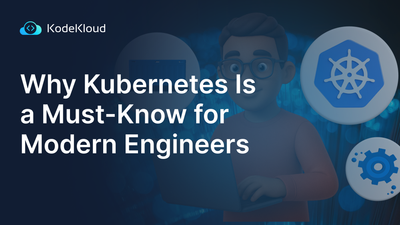

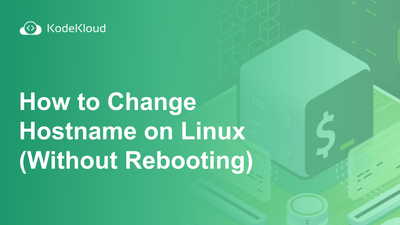

Discussion